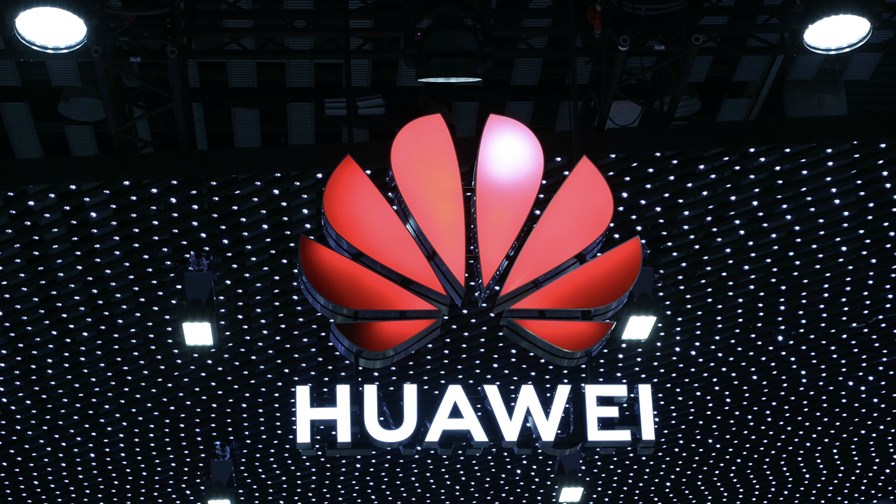
Source: Huawei
- "Clear evidence of collusion" between the two
- Pressing need to get Huawei equipment out of UK 5G networks well before 2027 deadline
- China making "overt and covert threats" to keep Huawei in play in Britain's networks
- Lashing about like an octopus learning to play the drums, but not quite as tuneful
The powerful House of Commons Defence Committee of the UK parliament has concluded that Huawei does indeed have deep links into the Chinese Communist Party and government, despite the oft-repeated denials on the part of the infrastructure and handset manufacturer. Citing "clear evidence of collusion," the committee says the UK must remove Huawei equipment from the country's 5G network as soon as possible, and certainly well in advance of the current and far too leisurely a deadline of 2027. As things stand, the government has prohibited the country's mobile operators from buying any more new Huawei 5G infrastructure equipment after 21 December, 2020.
Huawei's riposte is that the report "lacks credibility as it is built on opinion rather than fact". To paraphrase the evidence given by Mandy Rice-Davies at an infamous 1960's trial involving a senior British cabinet minister, a Russian spy, a jazz musician and a baffled wombat, "Well, they would say that, wouldn't they?"
It is as well to remember the very real fact that, only last week, Britain's National Cyber Security Centre reported that a broadband-related "vulnerability of national significance" has been discovered in Huawei network equipment back in 2019 but had been kept secret until it was analysed and neutralised. It added that Huawei has consistently "failed adequately to address various "security flaws" in the UK's comms networks despite official complaints and clear instructions to remedy them.
The Defence Committee report says. "It is clear that Huawei is strongly linked to the Chinese state and the Chinese Communist Party, despite its statements to the contrary. This is evidenced by its ownership model and the subsidies it has received." It adds that the Chinese government has uttered "covert and overt" threats in attempts to ensure Huawei equipment remains in the national 5G network.
Meanwhile, Huawei has issued a statement saying, "We're sure people will see through these accusations of collusion and remember instead what Huawei has delivered for Britain over the past 20 years." Quite.
With typical British reticence and understatement the report recommends that if the Chinese authorities continue to threaten and/or attempt to blackmail the UK should "carefully consider China's future presence in critical sectors of the economy". "I say, Carruthers, we might even go so far as to prohibit Chinese involvement in our nuclear sector, what?" After all who knows what might be concealed in the Chinese provided hardware and software infrastructure of a new atomic power station - or even an old one?
However after rattling the teacups rather than sabres, and spilling no more than a drop of warm Earl Grey in the process, the report suddenly changes tack and goes so far as to warn that the UK and "the West" should not "succumb to ill-informed anti-China hysteria". And they say satire is dead… mind you it could be cleverly disguised irony. As might be the suggestion that the 2027 deadline for ripping Huawei kit out of UK networks could be brought forward to 2025 if the Chinese authorities continue to be beastly. Yeah, no hurry. That'll stop 'em in their tracks.
Winter for Huawei is Springtime for Ericsson, Nokia, Samsung and others
The Defence Committee also advises the Johnson administration urgently to introduce new telecoms legislation that will clearly address and delineate boundaries where potential threats to national safety are concerned and (having a pop here at BT, Vodafone and their ilk) to put a stop to instances of "commercial concerns trumping national security".
That said, the government is well aware that the reality of removing Huawei kit sooner rather then later could result in loss of signals and service in various parts of the country with knock-on effects to the national economy. It has already intimated that telcos "could be compensated" if they have to step into the breach and accelerate the deployment of 5G equipment from non-Chinese equipment manufacturers. What will be Huawei's loss will be Ericsson's, Nokia's and probably Samsung's gain. Indeed some of those gains are already evident.
The Defence Committee report focuses on Huawei's involvement in 5G infrastructure rather than on the company's consumer handsets but there is no doubt that US sanctions and the UK government's U-turn on its original decision to keep Huawei equipment in the national networks and continue to buy more of it has really hurt the Chinese company.
Huawei is still trying to sell its 5G products across Europe and other parts of the world but indications are that, in the West at least, some countries are thinking again. This is unlikely to be the case in the African markets where many states have taken, (and continue to take) advantage of the suspiciously low cost of Huawei equipment, and its remarkable largesse as far as deferred and very easy payment plans are concerned. So heavily involved and indebted are some that they are basically now hostages to fortune and almost completely reliant on Huawei's involvement in their national networks. Time and the global political climate will tell if that means they could ever become operationally subservient to the Chinese state.
Huawei took a further knock when the mass of the Indian population stopped buying their handsets after the border skirmishes and Indian army deaths that happened in June. The long term effects of the clashes may well be to Huawei's further detriment as Indian politicians continue to press for a complete boycott of the company's products.
Meanwhile, Samsung of South Korea has, this very day, reported its Q3 figures which show a 58 per cent jump in profits. That sudden increase is partially due to the fact that Huawei, which is now has no legitimate access to US semi-conductor technology and is moving heaven and earth to develop its own advanced manufacturing capabilities, has been buying Samsung chips in bulk to tide it over until home-made semiconductors come on stream - and that could be quite a while yet.
Simultaneously, Ericsson's and Nokia's fortunes are on the up and up, mainly because their equipment, which is just as good as anything Huawei can produce if more expensive, are seen to be a safe and secure alternative from democratic ally nations rather then an increasingly aggressive totalitarian state.
Email Newsletters
Sign up to receive TelecomTV's top news and videos, plus exclusive subscriber-only content direct to your inbox.




